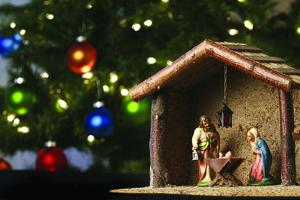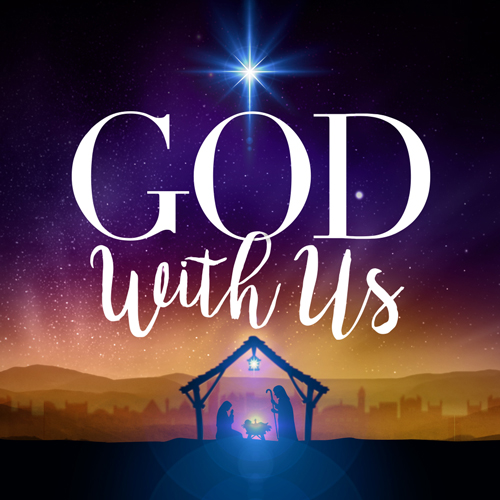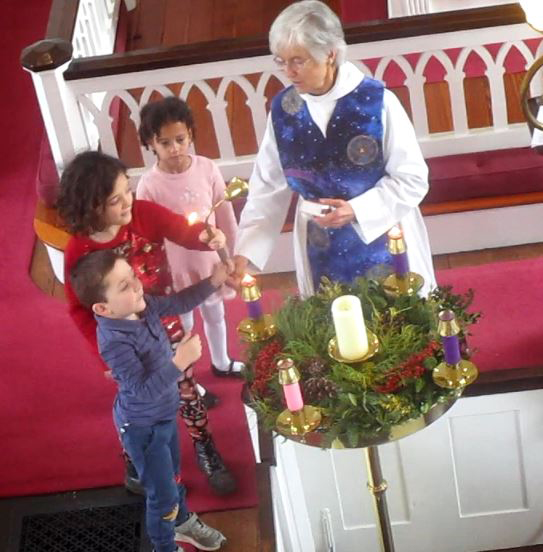1. Introduction
2. Bidding Prayer
St. Peter's Episcopal Church, Port Royal, VA

We are a small Episcopal Church on the banks of the Rappahannock in Port Royal, Virginia. We acknowledge that we gather on the traditional land of the first people of Port Royal, the Nandtaughtacund, and we respect and honor with gratitude the land itself, the legacy of the ancestors, and the life of the Rappahannock Tribe. Our mission statement is to do God’s Will in all that we do.
1. Introduction
2. Bidding Prayer
Epiphany – Jan 6 until Lent begins Feb. 22, 2023

Adoration of the Magi – Bartholomäus Zeitblom (c. 1450 – c. 1519)
The English word “Epiphany” comes from the Greek word epiphaneia, which means “appearing” or “revealing.” Epiphany focuses on God’s self-revelation in Christ.
Epiphany celebrates the twelfth day of Christmas, the coming of the Magi to give homage to God’s Beloved Child.
The Epiphany celebration remembers the three miracles that manifest the divinity of Christ. The celebration originated in the Eastern Church in AD 361, beginning as a commemoration of the birth of Christ. Later, additional meanings were added – the visit of the three Magi, Christ’s baptism in the Jordan River with the voice from heaven that identifies Jesus as God’s son, and his first miracle at the wedding in Cana. These three events are central to the definition of Epiphany, and its meaning is drawn from these occurrences.
1. St. Stephen Dec. 26
Stephen was among the earliest Christian martyrs, stoned to death for his beliefs. St. Paul not only witnessed the event but held the garments of those stoning Stephen which he regretted later on and carried a lasting sense of guilt.
2. John the Apostle Dec. 27
John, one of the Apostles, possibly lived the longest life associated with the Gospel, an author in that time and Evangelist spreading the Gospel to many in the Mediterranean area who were not of Jewish background. He is believed to be the only Apostle not martyred for the cause. He is associated with the Gospel that bears his name, 3 Epistles and possible authorship of the Book of Revelation.
3. Holy Innocents Dec. 28
The term “Holy Innocents” comes from Matthew’s Gospel Chapter 2. When Jesus was born in Bethlehem, King Herod, fearing for his throne, ordered that all the male infants of Bethlehem two years and younger be killed. These children are regarded as martyrs for the Gospel — “martyrs in fact though not in will.” This can be compared to the conduct of Pharoah in Exodus 1:16. “When you are helping the Hebrew women during childbirth on the delivery stool, if you see that the baby is a boy, kill him; but if it is a girl, let her live.”
Click here to view in a new window.

Each year the Episcopal Church Men (ECM) provide support to those in need during the holidays by coordinating with the Caroline County Department of Social Services. In pre-pandemic times they donated Thanksgiving dinners and Christmas gifts to specific families from Social Services. With the Pandemic the Department of Social Services will continue providing families with secure store specific grocery limited gift cards.
This year $500 was given for Thanksgiving and $750 for Christmas for a total of $1,250. It was the third year since 2020 that over $1,000 was provided!
Thanks to all who contributed and to Ken Pogue and the leadership in the ECM for their work in organizing their ministry and this outreach effort!
Christmas , December 25, 2022
Explore Christmas Eve– A study of the scriptures, art and the meaning of the Christmas Scriptures.
Explore the Art of the Nativity How the Nativity has been viewed by artists
 Rediscovering the love of God this Christmas- a one minute video from the Acts8Movement of the Episcopal Church
Rediscovering the love of God this Christmas- a one minute video from the Acts8Movement of the Episcopal Church

 Origins of 30 Christmas Carols
Origins of 30 Christmas Carols
 Unlikely Christmas Carols: Bruce Cockburn’s “Cry Of A Tiny Baby”
Unlikely Christmas Carols: Bruce Cockburn’s “Cry Of A Tiny Baby”

A post from teacher and theologian David Lose: “So maybe I shouldn’t describe this Christmas carol as “unlikely” in that Bruce Cockburn has explored the Christian story and theology, along with issues of human rights, throughout his forty-year career. But it may very well be unfamiliar to you. If so, you’re in for a treat, as the Canadian folk and rock guitarist, singer-songwriter’s beautiful retelling of the Christmas story blends elements of both Luke’s tender narrative of the in-breaking good news of God to the least likely of recipients – a teenage girl, her confused fiancee, down-and-out shepherds – with Matthew’s starkly realistic picture of a baby that threatens kings by his mere existence.
Here’s the link to a video with the words .
For more David Lose writing about the Christmas Eve and Christmas readings, check out the “Christmas sermon I need to hear.”

“Space in the Manger”
by Meghan Cotter. Meghan is executive director of Micah Ecumenical Ministries, a faith-based nonprofit that offers holistic care to the community’s street homeless

“Some time back, I watched a friend in need attempt to repair five years worth of disintegrating relationships. The library, a local gymnasium, a number of area businesses and even her family had cut off ties in response to her boisterously disruptive behavior.
” She’d picked up criminal charges—a few nuisance violations, a trespassing or two and an assault on an officer. At times, even the agencies trying to help her had been left with little choice than dismissing her from their facilities. But the more the community isolated her, the more volatile became her symptoms. She grew angrier and louder. Her self-appointment as the spokesperson for her homeless peers turned radical, even threatening. Feeling ignored and stripped of personhood, she waltzed into a church one Sunday, intent on being heard. Just in time for the sermon she rose from the congregation, rolled out a sleeping bag and unleashed a number of choice words to convey the plight of Fredericksburg’s homeless.
” The following morning, the church pastor faced a critical decision. In the interest of safety for his congregation, he too considered banning her from his church building. Instead, he made up his mind to find a way to help this woman. By the end of the week, she was hospitalized and taking medications. Within the month she had stepped down to Micah’s respite home, which cares for homeless individuals when they are discharged from the hospital. She realized how sick she really was, and a new person emerged before our eyes. She reunited with family, paid off fines, regained her driver’s license, became remarkably motivated to comply with doctor’s appointments. She set goals—seeking disability, but only temporarily, going back to school, earning a nursing degree and finding a way to productively address the needs of the community’s homeless.
“Christmas on the Edge” – Malcolm Guite
Christmas sets the centre on the edge; The edge of town, the outhouse of the inn, The fringe of empire, far from privilege And power, on the edge and outer spin Of turning worlds, a margin of small stars That edge a galaxy itself light years From some unguessed at cosmic origin. Christmas sets the centre at the edge.
And from this day our world is re-aligned A tiny seed unfolding in the womb Becomes the source from which we all unfold And flower into being. We are healed, The end begins, the tomb becomes a womb, For now in him all things are re-aligned.
Alexander Shaia – “Solstice, Shepherds & Your Animal Spirit”
Alexander Shaia is the author of Heart and Mind: The Four-Gospel Journey for Radical Transformation. A number of years we read the book together in Christian ed.
In this video he is talking about the shepherds in Luke’s Gospel. The video starts at the 2:42 mark to get to his main message:
You can read portions of the transcribed text here
“The text is really primarily about your life whenever your life is in the deepest night, when your life is in the deepest dark.”
“The Beauty of the Shepherds story in Luke is that it tells about the journey we make hearing deep in the night of our life an angel announce that there is a birth but that we have make a journey through the night to the dawn where we will see with our own eyes that fresh radiance born before us.”
A Christmas Message from Bishop Goff – “Where is this stupendous stranger?”

“So I invite us all to a spiritual discipline in this holy season and that is to spend ome time with someone you don’t ordinarily engage…maybe someone of a different generation either much older or much younger than you or someone of a different race or ethnicity, a different culture or religion, a different economic circumstance.
“Have a cup of coffee together or a meal together, talk and listen deeply. Look for the face of Christ in that person. Because as we come to really know a stranger in our midst we welcome Christ who was himself a stranger and we find surprising connections that we never imagined with other natives of this world God made.
Christmas Eve , December 24, 1968, at the Moon with Apollo 8

53 years ago on Christmas Eve we witnessed the moving reading of the first 10 verses of Genesis for the largest audience up to that time. They were told to something appropriate. The astronauts have reflected on the event. A newspaper friend of Borman tried to think of what to say and he could come up with nothing after a night’s work. His wife said (raised in convent in France) suggested, “Why don’t you start in the beginning” He said “Where?”. She said “Genesis in the Bible.” They reflected later – “Why didn’t we think of that.” Borman explained they tried to convey not happen stance but power behind world and behind life gave it meaning. As he later explained, “I had an enormous feeling that there had to be a power greater than any of us-that there was a God, that there was indeed a beginning.”
The full story is here
1. Candle Lighting Advent 4
2. Hymn – “Creator of the stars of night”
3. Sermon – Advent 4 – “Fear”
4. Offertory – “He shall feed his flock”

Sermon, Fourth Sunday of Advent, Year A 2022
Isaiah 7:10-16, Matthew 1:18-25
Fear is an awful thing.
Fear can pounce, overwhelming us unexpectedly. Fear can also be like a seed, planted in our minds, a seed that takes root and grows, and takes over our minds like one of those kudzu vines down south that grows out of control, covers everything in its paths, and kills everything under it.
We, too, must deal with the inevitable fears that come to us in this life, for if we do not, fear will take over and kill us.
Dealing with fear can be next to impossible, though, for fear, once it takes root, is so overwhelming.
So here’s the good news in today’s gospel.
God is with us, and God wants to help us deal with our fears. Today’s lessons give us some examples.
King Ahaz in today’s Old Testament reading is filled with fear.
Ahaz is the king of a small nation, Judah. His neighbors, Israel and Syria, are about to invade his nation to force him into an alliance with them so that he’ll have to join in their fight against Assyria, a powerful country that is threatening to overwhelm all of the small nations around it.
God knows that Ahaz is full of fear, and so God says, “Ask me for a sign.”
God is telling Ahaz—”I am with you, Ahaz, and I will help you deal with your fear.”
But Ahaz turns God down. “No, I will not ask for a sign and put the Lord to the test,” he says.
Then the prophet Isaiah says that even though Ahaz doesn’t want it, the Lord will give him a sign anyway.
And the sign is that a young woman is with child and shall bear a son and will call him Immanuel, and that sign means “God with us.” And before the baby grows up, the two nations that Ahaz is worried about will be deserted. In other words, those two kings will be destroyed and Ahaz won’t have to fear them.
But Ahaz chooses to ignore the sign from God and continues to let fear drive his decisions. He turns to the king of Assyria for help, a bad plan, for in the end, Assyria brings Ahaz and Judah to ruin.
If only Ahaz had only paid attention to God’s sign and acted accordingly!
Then we come to Joseph in Matthew’s gospel. Joseph has found out that Mary is pregnant. And so Joseph is frightened. He is caught in a great dilemma. Break the law and take Mary as his wife anyway? Let Mary go? If he lets her go, her life will be in danger, for the penalty she might face for her pregnancy is death.
What to do!
Joseph decides to dismiss Mary quietly, hoping that she will not be exposed to public disgrace.
But after he makes this mental resolve, God comes to Joseph in a dream. The angel tells Joseph not to be afraid, because wouldn’t you be afraid if an angel showed up and started talking to you?
And then the angel gives Joseph a sign, the same one that Ahaz had received so long ago.
A virgin will conceive and bear a son, whose name will be Emmanuel, God with us!
God with us.
When we find ourselves full of fear, that’s the time to look for a sign from God, for God is with us in our fear, and we will get through the fear to the other side if we welcome God into the fear.
But how do we receive signs from God when we are afraid?
Prophets like Isaiah and angels like the one who appeared to Joseph in a dream seem to be in short supply these days, but we need not despair. God still speaks to us in an infinite variety of ways, especially when we are full of fear, or facing an unexpected challenging situation. God will speak to us in our fears and will sustain us as we deal with those fears.
Some of you know Salli Hartman. Her husband, Frank, died of ALS a few years ago. Can you imagine the fear that Frank and Salli felt when the doctor told them that Frank had ALS? What horrible news.
So here’s what happened, and I’m sharing this with Salli’s permission. As they both agonized over what was ahead, Salli received a sign from God, a curious and maybe unwanted at that moment sign, a sign about the future that would require trust in God and patience. Within forty-eight hours of Frank’s diagnosis, Salli felt a very clear call from God to become a deacon in the Episcopal Church. But wait, she had to take care of Frank! As time passed, though, Salli realized that this call to the diaconate was a sign that God would be with her through Frank’s illness and death, and that God had a plan for her and her life after Frank was gone. That was a powerful sign! Salli trusted in God and had patience with God’s timing. Today, she is an ordained deacon and is serving at St Mary’s, over in Colonial Beach.
Now here’s a literal sign from my own life. Earlier this year, I had some tough decisions to make and just didn’t know how I’d manage to do what I felt God was asking me to do. I was full of fear on many levels.
God provided signs about what I should do, and I won’t go into all of that because to tell you about how God’s grace has been in my life in so many ways this year would take hours. But I want to share this one sign because it meant so much to me in the moment.
One rainy cold night, I was driving and trying to deal with a series of alarming texts. I pulled into a parking lot to answer the texts. And there, right in front of me in the window of the store where I had stopped was a hand painted wooden sign, and here’s what the sign said.
“I can do all things through him who gives me strength.” Philippians 4:13.
That handpainted wooden sign was a literal sign from God. What reassurance I felt.
The person who painted that sign and put it in the window could have had no idea that I would see the sign and know that God was speaking directly to me.
God has given me strength this past year.
And God will give you strength too, in your greatest fears.
The signs you receive from God may be enigmatic, or the signs may be literal, but God will speak directly to you—and I won’t discount prophets and angels speaking to you, even in our profane times.
So the next time you find yourself full of fear, expect a sign from God that God is with you. God will sustain you. God will give you strength and courage to deal with your fears.
There’s one other thing that I hope you’ll remember from today’s readings. God is with us in our fears and gives us signs not just for our own benefit, but for the greater benefit to those around us and to the rest of the world.
If Ahaz had paid attention to God’s sign and had resolved to wait on God rather than Assyria, the nation of Judah may have been saved rather than destroyed.
Joseph paid attention to the sign God sent him, and in so doing raised the boy who would turn out to be the Savior of the world.
In this season of preparation, we get to remember all over again that God gives all of us the same sign that God gave to Ahaz and to Joseph so long ago.
“Look, the virgin will conceive and bear a son, and they will call his name Immanuel.”
God with us.
God with ALL of us for the good of all of us.
God’s signs to us, when we receive them, allow us to be part of God’s eternal work of creating beginnings from endings, bringing life out of death, and making all things new.
In these last days of Advent, daylight is short, the weather is cold, and we are weary of the stress and hustle and bustle of preparing for the holidays. In The Dream of Saint Joseph by Anton Raphael Mengs (1773), we meet the sleeping Joseph, who dozes off at his workbench. He is worn out, like we might be these days. His sleep is heavy with the burden of heartbreak and hard decisions, his dreams haunted by the fading hope of a life and family that might not be. His cloak and dark garments weigh on his shoulders as if to symbolize his burden.
Into his dark and heavy sleep enters the light of an angel. The angel illuminates the scene with a lightness to her whole being—an image to balance Joseph’s burden. She is light, she is hope, she is assurance, she is direction, and she is purpose. Her finger points boldly into the darkest corner of the scene as if to say: This, your deepest and darkest fear and worry, is where the Good News of Jesus Christ will meet you. Do not be afraid.
For Joseph, his greatest burden will become his greatest blessing. His dream is a consolation to us all in these darkest days of the year, whether we experience the darkness externally or internally. The light of Christ will shine to dispel the darkness—where in your life do you yearn for it most?

Photo from service Dec. 11
Coming up!
Dec. 18, 11:00am – Advent 4
Dec. 18, Deadline for General Endowment Fund donations

Blooming Desert
“Isaiah 35 is a powerful poetic word of comfort for the mourning Judahite exiles, who lost their temple, land, and sovereignty. Their suffering is manifested in “weak hands” (verse 3), “feeble knees” (verse 3), a “fearful heart” (verse 4), obscured vision (verse 5), hindered hearing (verse 5), broken bodies (verse 6), and silent tongues (verse 6). The literary “body” constructed in Isaiah 35 has been utterly overwhelmed by despair and weariness. Their capacities needed to move through this world have been diminished. The exiles feel God’s sorrow in their very bodies.
–From “Working Preacher”, 2016“In this week’s Old Testament passage, the prophet Isaiah envisions a new world. The wilderness — the dry and barren land where the Israelites once wandered — is reborn into paradise. Eden returns, as crocuses bloom, forests proliferate, and a new highway, a “Holy Way,” is forged in desert sands. God promises that those who have been in exile “shall return,” and that “everlasting joy shall be upon their heads.”
“Such a vision can be hard to conjure when the world around us is so broken. We know and experience suffering all around us, often within our deepest selves. Seasons of spiritual dryness keep us from sensing God’s presence. It can be difficult to believe that God is already remaking the world into a place where “sorrow and sighing flee.”
“In Jesus’s own time, people were just as wary of utopian visions. John the Baptist surely knew the words of Isaiah, but his faith must have been tested — sitting as he was in a prison cell and hearing about the works of Jesus.
“In this week’s Gospel, John sends word to ask Jesus if he is “the one who is to come.” “Are you the Messiah we have hoped for,” John is asking, the one who will restore the world from a place of rampant suffering to a place of joy?
“Jesus does not answer John directly. Instead, he tells John that there is healing — the blind can see and the deaf can hear — and that, indeed, death itself is on its way out. “The dead are raised,” Jesus says, “and the poor have good news.”
“Into a world of lament, Jesus has come, living among us, and bearing the suffering with us. This is, in fact, the essence of Christmas.
“The incarnation means that God in Jesus descends into the wilderness of this world — a place of sighs and sorrows — and inaugurates a new creation where the desert of death can begin to team with new life. Jesus paves the way — the Holy Way — with every act of healing, each word of kindness. He is indeed “the one to come,” and he is already here.
From Summerlee Staten

Photo from the Christmas Play, Dec. 4
Coming up!
Dec. 11, 11:00am – Advent 3
Dec. 11, Deadline for Christmas donations to the Episcopal Church Men (ECM) for their outreach
Dec. 14, Village Dinner 4:30-6 PM. Eat in or take out. Call Susan Linne von Berg to make your reservation. 804-742-5233
Dec. 18, Deadline for General Endowment Fund donations